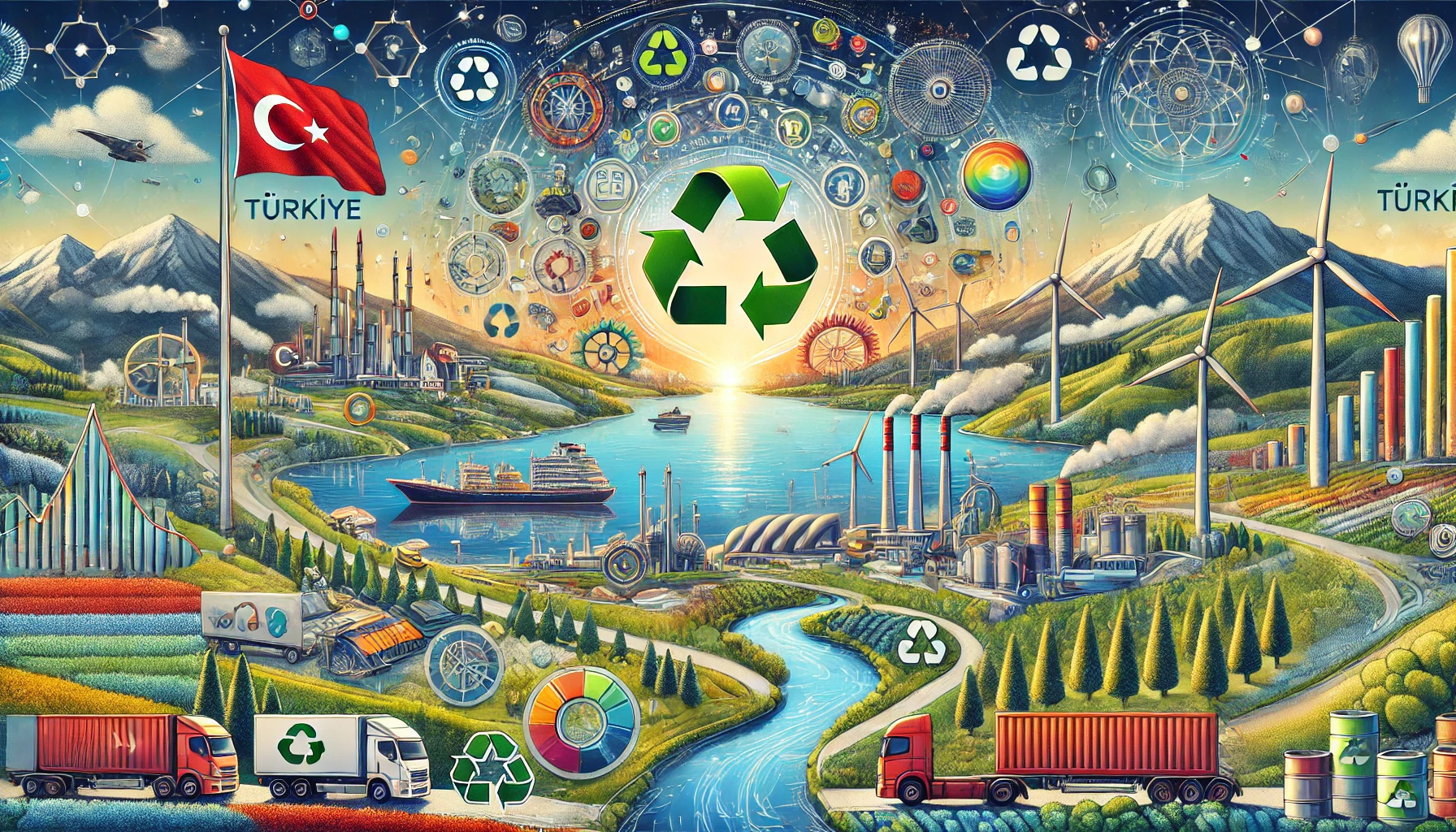Turkiye’s Circular Economy Shift: A Path to Sustainable Growth and EU Alignment
The report explores Turkiye’s transition to a circular economy, emphasizing its strategic importance in aligning with EU regulations and enhancing competitiveness in global value chains. It highlights opportunities in textiles and automotive sectors, while addressing challenges in recycling infrastructure, financing, and policy alignment to achieve sustainable growth.

A study authored by the World Bank in collaboration with leading international research institutions delves into Turkiye’s evolving role in the global value chain and its potential for adopting circular economy (CE) principles. This transition is vital as Turkiye navigates the dual challenges of aligning with European Union (EU) regulations and strengthening its competitive edge. With 70% of its EU exports stemming from the textiles and automotive sectors, Turkiye’s industrial focus on these key areas is pivotal for implementing CE strategies. The EU’s Green Deal and Circular Economy Action Plan provide a framework for sustainable practices, positioning Turkiye not just as a compliant trade partner but as a leader in circular production within the global marketplace.
Two Scenarios for a Circular Future
The report introduces two distinct scenarios for Turkiye’s transition to a circular economy. The first, "Circular Economy Light," advocates for incremental changes through resource efficiency, technological upgrades, and compliance with current EU regulations. This scenario emphasizes practical measures such as pre-consumer recycling and the adoption of monitoring systems for better material traceability. In contrast, the "Full Circular Economy" scenario envisions a more transformative shift, requiring businesses to overhaul production processes, adopt product-as-service models, and extend product lifecycles. This comprehensive approach aligns with long-term sustainability goals and offers Turkiye the opportunity to lead global circular economy practices. While the first scenario presents a feasible pathway for near-term results, the second promises more significant environmental and economic impacts, solidifying Turkiye’s role in sustainable manufacturing.
Progress Amid Challenges
Turkiye has made notable advancements toward circularity, including improvements in resource-efficient technologies, workforce development, and the establishment of an early-stage recycling infrastructure. Manufacturing sectors have started implementing digital tools for tracking and compliance, which are essential for aligning with EU regulatory demands. However, significant challenges persist. Recycling rates, although improving, remain below EU averages, and the country’s infrastructure for managing post-consumer waste is underdeveloped. Access to high-quality recycled materials is limited, creating barriers for businesses attempting to integrate these materials into production processes. Furthermore, a lack of coordination between policymakers and industry players hinders the development of a cohesive circular economy ecosystem.
Another pressing issue is the financial burden of the transition. Many Turkish businesses, particularly small and medium-sized enterprises (SMEs), struggle to access capital for sustainable investments. This financial constraint impedes progress in areas such as recycling technology, advanced manufacturing processes, and skill development. The report underscores the importance of establishing long-term financing mechanisms, including international funding opportunities, government incentives, and public-private partnerships. Such collaborations could address these financial challenges and drive innovation, enabling Turkiye to scale up its circular economy efforts effectively.
Aligning Policies with EU Standards
Policy alignment is a critical component of Turkiye’s CE transition. The report emphasizes the need for Turkiye to harmonize its domestic regulations with the EU’s evolving circular economy framework. This alignment is essential for maintaining market access and competitiveness, particularly as the EU introduces more stringent environmental standards. Key recommendations include setting ambitious national recycling targets, incentivizing the use of recycled materials in production, and promoting sustainable practices across industries.
Public awareness and consumer behavior are also highlighted as integral to the success of the transition. Educating consumers about sustainable consumption patterns can create demand for circular products, driving a market shift that supports industry efforts. Additionally, Turkiye’s regulatory strategy must address gaps in enforcement and monitoring to ensure that businesses adopt and maintain circular practices.
A Future of Opportunity and Leadership
The economic and environmental potential of Turkiye’s CE transition is immense. By embracing circularity, Turkiye can reduce its reliance on imported raw materials, enhance the resilience of its industries against global supply chain disruptions, and unlock new opportunities for innovation-driven growth. The report estimates that a comprehensive adoption of CE principles could significantly boost Turkiye’s GDP while reducing environmental impacts, including resource depletion, pollution, and greenhouse gas emissions.
Turkiye’s strategic location and robust manufacturing base position it as a potential global leader in sustainable production. The country could leverage its strengths to attract international investments, foster innovation, and establish itself as a hub for green manufacturing. Public-private partnerships and collaborations with international research institutions are essential to achieving this vision, ensuring that Turkiye’s transition is both effective and equitable.
The report concludes with a call to action for Turkiye’s leadership. Bold, coordinated efforts across government, industry, and society are needed to overcome the challenges of circularity and capitalize on its opportunities. Investments in recycling infrastructure, advanced technologies, and workforce training are critical to building a circular economy ecosystem. Furthermore, Turkiye must position itself globally through initiatives such as sustainable branding campaigns and international collaborations.
Turkiye’s journey toward a circular economy represents both a challenge and an opportunity. With the right policies, investments, and partnerships, the country can emerge as a global role model for aligning economic growth with sustainability. By setting ambitious goals and fostering collaboration, Turkiye has the potential to lead by example, demonstrating how emerging economies can successfully navigate the complexities of a circular economy transition. The report offers a clear roadmap for Turkiye to realize its vision of sustainable growth, emphasizing that the time for action is now.
- FIRST PUBLISHED IN:
- Devdiscourse
ALSO READ
Navigating Tensions: U.S.-India Talks Amid China's Expanding Influence
Jake Sullivan's Farewell India Trip: Cementing Indo-US Strategic Ties
India's Fierce Pace Attack Dominates Australia in Crucial Test
Myanmar's Independence Day Amnesty Sparks Controversy
India skipper Jasprit Bumrah leaves stadium for scans. Virat Kohli leads team in his absence in Sydney Test.










